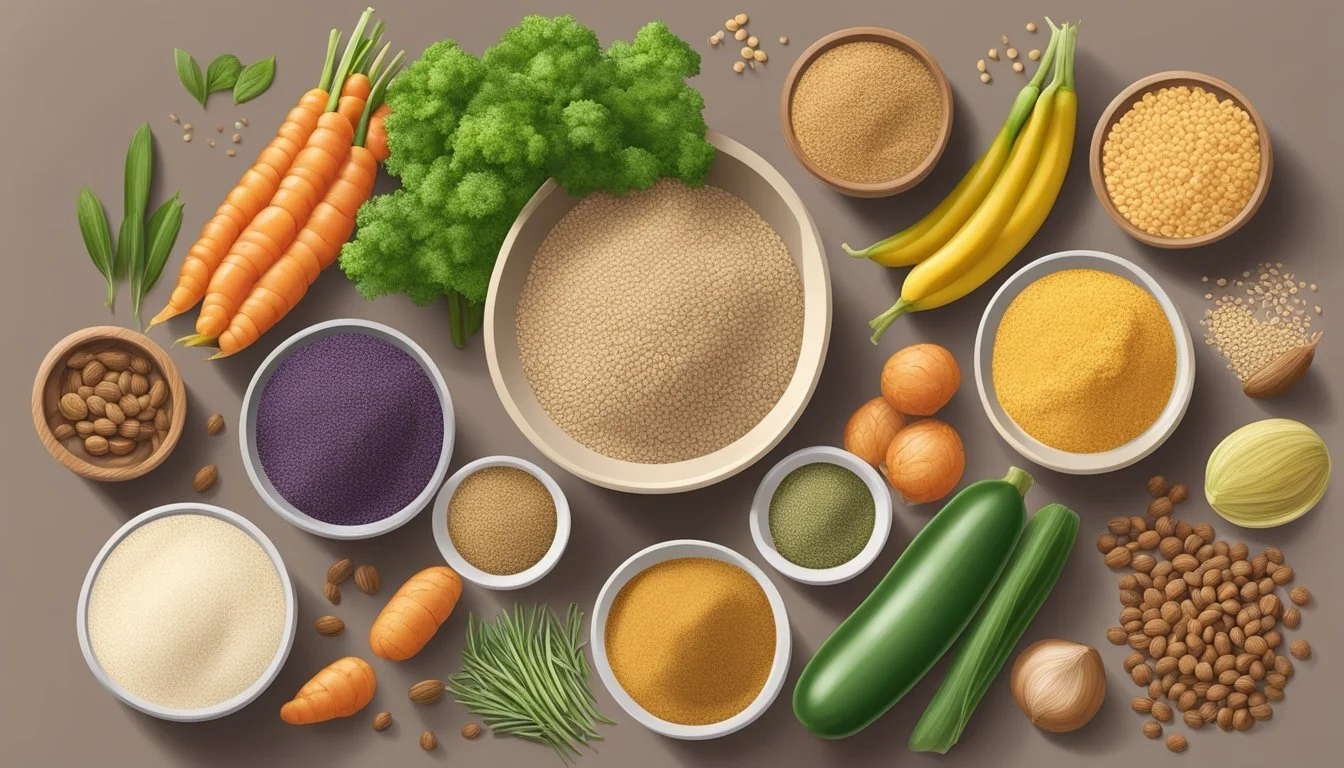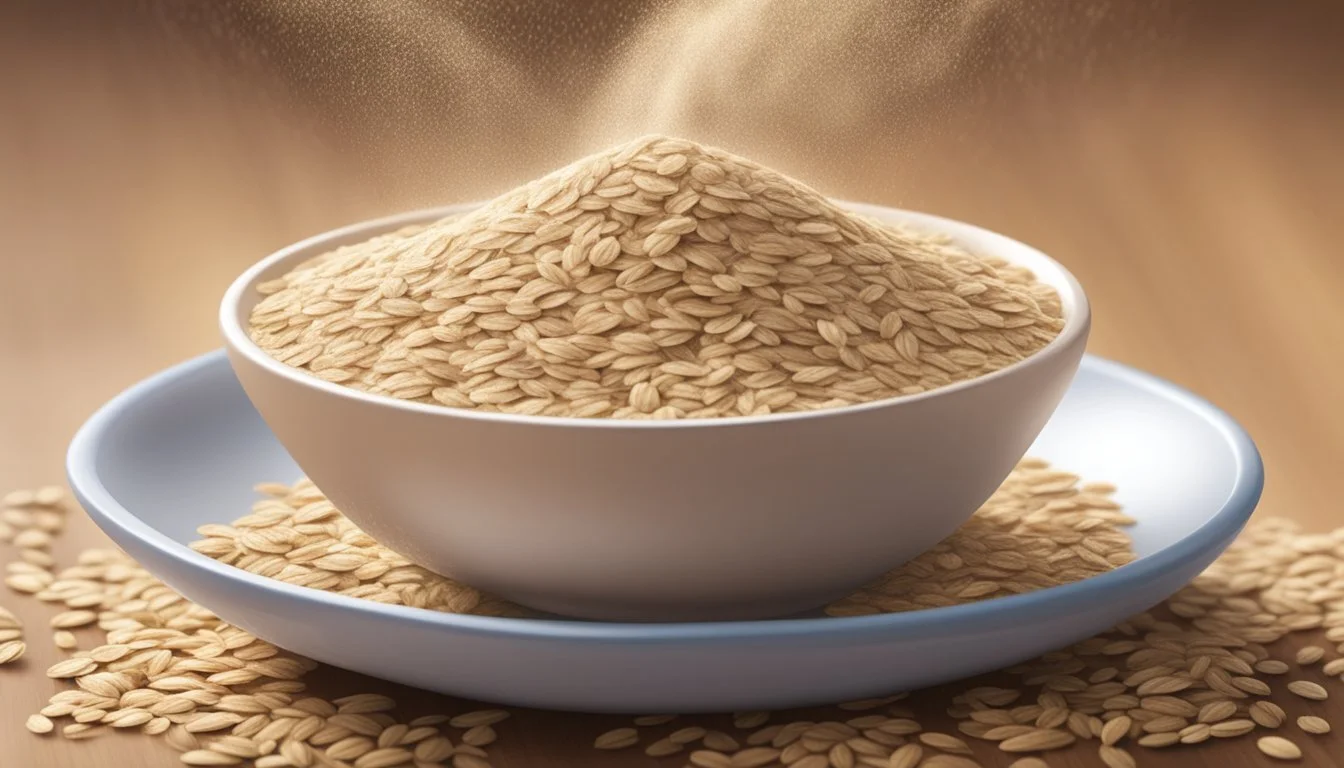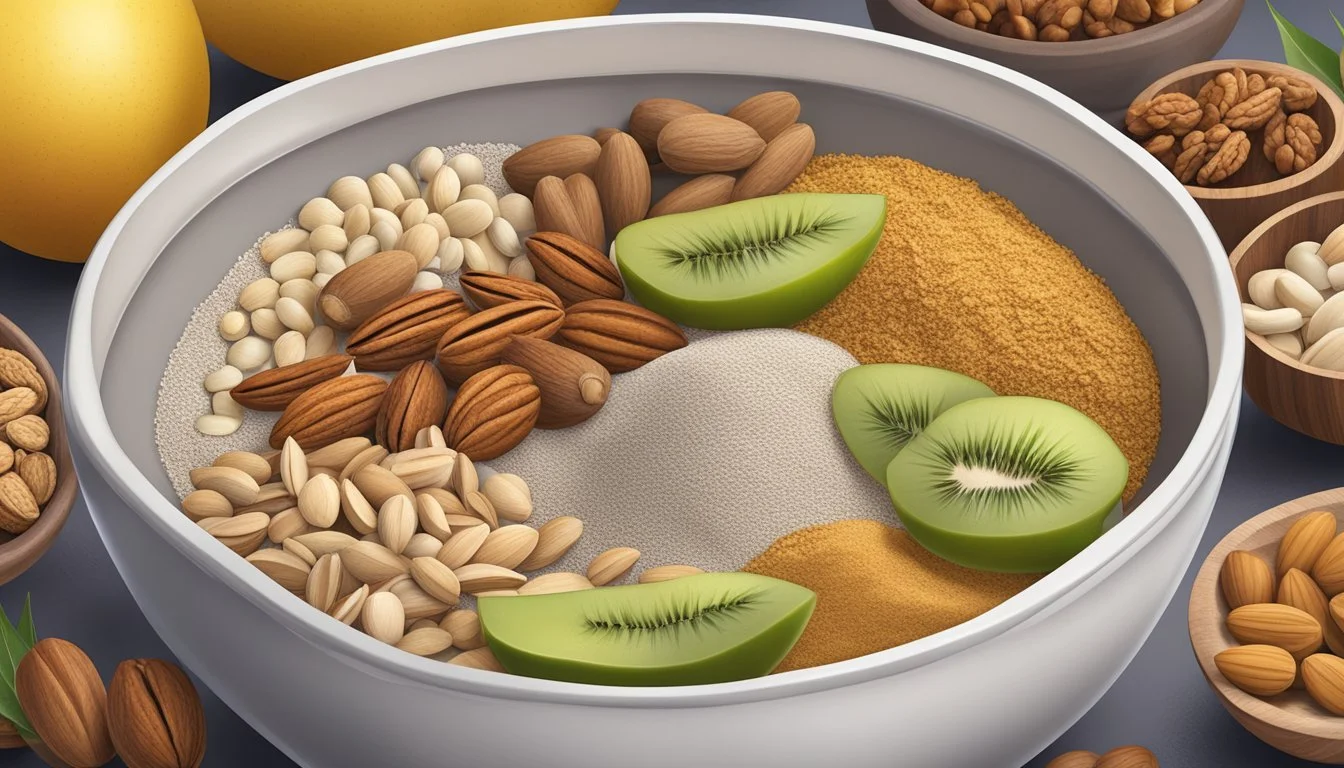Can Diabetics Eat Mesquite Powder?
Health Benefits and Considerations
Mesquite powder, derived from the pods of the mesquite tree, has gained recognition as a superfood due to its impressive nutritional profile. Packed with dietary fiber, protein, and essential minerals, it provides various health benefits. For diabetics, the crucial question remains: can they safely integrate this ingredient into their diet?
Yes, diabetics can consume mesquite powder, as it has a low glycemic index and can help stabilize blood sugar levels. The presence of soluble fiber further aids in managing blood sugar and reducing cholesterol levels. Moreover, mesquite powder contains fructose, a type of sugar that does not require insulin for metabolism, making it a suitable option for those managing diabetes.
In addition to its blood sugar-stabilizing properties, mesquite powder is rich in potassium, magnesium, and zinc, which are beneficial for overall health. Individuals seeking to prevent or control Type 2 diabetes might find that incorporating mesquite powder into their diet offers both nutritional benefits and dietary variety.
Understanding Diabetes
Diabetes is a condition affecting how the body processes blood sugar. Key aspects include managing blood sugar levels and understanding diet’s role in Type 2 Diabetes.
Fundamentals of Blood Sugar Management
Blood sugar levels are essential in diabetes management. Glucose is the main source of energy for the body, but incorrect levels can cause health issues.
In Type 2 Diabetes, insulin resistance means the body struggles to regulate glucose effectively. Insulin, a hormone produced by the pancreas, helps cells absorb glucose. When cells become resistant, glucose accumulates in the blood, leading to high blood sugar levels.
Effective management includes regular monitoring, lifestyle adjustments, and medication. High blood sugar can result in long-term complications such as heart disease and nerve damage.
Role of Diet in Type 2 Diabetes
Diet profoundly impacts blood sugar levels and overall health in individuals with Type 2 Diabetes. Eating low-glycemic foods, which slowly release glucose, helps maintain steady blood sugar levels.
Foods rich in fiber, such as vegetables and whole grains, are beneficial. They improve insulin sensitivity and help control blood sugar spikes.
Proteins and healthy fats are also crucial. They provide sustained energy without raising blood sugar dramatically. Avoiding refined sugars and processed foods reduces the risk of high blood sugar events.
Planning meals and understanding the effect of different foods on blood sugar can reduce complications and support a healthier lifestyle.
Nutritional Profile of Mesquite Powder
Mesquite powder is a nutrient-dense food with a variety of macronutrients and essential vitamins and minerals. Understanding its nutritional composition can help determine its suitability for diabetic diets.
Mesquite Powder's Macronutrients
Mesquite powder contains notable amounts of carbohydrates, fiber, and protein. The carbohydrates in mesquite powder mostly consist of simple sugars such as sucrose, fructose, and glucose. Despite its natural sweetness, it has a low Glycemic Index (GI), making it a favorable option for blood sugar management.
The powder is rich in soluble fiber, which aids in not only reducing blood sugar levels but also in decreasing cholesterol. Additionally, mesquite powder supplies a decent amount of protein, which contributes to its high nutritional value.
Vitamins and Minerals in Mesquite Powder
Mesquite powder is packed with essential minerals. It provides significant quantities of iron, calcium, magnesium, and zinc. Specifically, it offers 5.7 mg of iron, 253 mg of calcium, 69 mg of magnesium, and 2.7 mg of zinc per 100 grams.
These minerals play crucial roles in various bodily functions. For example, iron supports oxygen transport in the blood, while calcium and magnesium are vital for bone health. Zinc is important for immune function.
Additionally, mesquite powder contains omega-3 fatty acids, which are beneficial for heart health. The combination of these nutrients makes mesquite powder a nutritious addition to a diabetic diet, provided it is consumed in appropriate portions.
Mesquite Powder in Diabetic Diet
Mesquite powder offers a low glycemic index and an array of nutrients, making it a potential asset in diabetic meal planning. The comparative benefits of mesquite versus other flours and its specific impact on blood sugar control are crucial for understanding its role in a diabetic diet.
Comparing Mesquite with Other Flours
Mesquite flour stands out due to its low glycemic index, which reduces the risk of blood sugar spikes. By contrast, white flour has a high glycemic index and lacks essential nutrients. Whole grain flour provides more fiber but can still elevate blood sugar levels more than mesquite.
Other flours like almond, coconut, and chickpea flour also have low glycemic indices but differ in their composition. Almond flour is high in fats and proteins. Coconut flour contains more fiber. Chickpea flour offers a good protein content. Mesquite flour is unique for its combination of moderate protein, iron, calcium, and magnesium.
Mesquite's natural sweetness reduces the need for added sugars in baked goods, enhancing its utility in diabetic-friendly recipes.
Mesquite's Effects on Blood Sugar Control
The low glycemic index of mesquite flour helps in maintaining steady blood sugar levels. This feature is critical for diabetics aiming to avoid sugar spikes. The dietary fiber in mesquite also promotes slower carbohydrate absorption, assisting in longer-lasting blood sugar control.
Studies highlight that diets rich in low-GI foods like mesquite can reduce insulin resistance over time. This reduction is beneficial in managing type 2 diabetes effectively.
Mesquite powder also includes beneficial nutrients like zinc and magnesium, which play roles in insulin function and glucose metabolism. By incorporating mesquite in their diet, diabetics can leverage these nutrient benefits for better overall blood sugar management.
Incorporating Mesquite Powder into Meals
Incorporating mesquite powder into a diet can be beneficial for diabetics due to its low glycemic index and nutrient-rich profile. There are various creative ways to incorporate mesquite powder into everyday meals and pair it with other diabetic-friendly foods.
Recipes and Serving Ideas
Smoothies and Drinks: Mesquite powder can be added to smoothies for an extra nutritional boost. Blend it with almond milk, spinach, and a handful of berries for a diabetes-friendly drink.
Baked Goods: Replace a portion of regular flour in recipes for bread, muffins, or pancakes with mesquite flour. This can add a sweet, nutty flavor while improving the nutritional content.
Soups and Stews: Stirring in some mesquite powder can enhance the flavor and nutrient profile of soups and stews. Try adding it to a bean or vegetable soup for added fiber and minerals.
Pairing Mesquite with Other Diabetic-friendly Foods
Nuts and Seeds: Combine mesquite powder with nuts and seeds in energy balls or bars for a healthy, convenient snack.
Legumes and Pulses: Incorporate it into dishes featuring beans or lentils. This can increase the meal’s overall fiber content, supporting better blood sugar control.
Whole Grains: Mix mesquite powder into whole wheat or oat-based recipes. This complements the grains’ natural benefits, making for a balanced meal.
Vegetables and Superfoods: Use mesquite in recipes that include other superfoods like leafy greens, sweet potatoes, and bell peppers. This makes for nutrient-dense dishes that support diabetic health.
Incorporating mesquite powder in these ways can help maintain a balanced diet while providing variety and additional health benefits.
Health Benefits Beyond Diabetes
Mesquite powder offers a range of health benefits beyond its diabetic-friendly properties, contributing to improved cardiovascular health and effective weight management, thanks to its rich nutrient profile.
Cardiovascular Health with Mesquite
Mesquite powder contains significant amounts of soluble fiber and omega-3 fatty acids. Soluble fiber can help lower cholesterol levels, reducing the risk of cardiovascular diseases.
The presence of potassium in mesquite powder aids in maintaining healthy blood pressure levels, which is crucial for heart health. Potassium acts as an essential mineral and electrolyte that helps prevent stroke and supports heart function.
Moreover, mesquite powder is rich in lysine, an amino acid that plays a role in preventing hardening of the arteries. By incorporating mesquite into their diet, individuals can benefit from a combination of nutrients that work together to support cardiovascular health.
Weight Management and Mesquite
With its high fiber content, mesquite powder promotes a feeling of fullness, helping to reduce overall calorie intake. This makes it a valuable addition to a weight management plan.
Mesquite powder's low glycemic index also aids in stabilizing blood sugar, preventing the spikes and crashes in energy levels that lead to overeating.
Digestion is further supported by the fiber in mesquite powder, which can help alleviate constipation and maintain healthy bowel movements. These properties make it easier for individuals to manage their weight effectively, reducing the risk of obesity.
In summary, mesquite powder is not only beneficial for managing diabetes but also offers important health advantages in cardiovascular health and weight management.
Culinary Uses and Traditions
Mesquite powder, derived from the pods of the mesquite tree, has deep roots in historical culinary practices and is now embraced globally in innovative ways. This section explores its historical significance and modern applications.
Mesquite's Historical Significance
Mesquite powder has been utilized for centuries by Native Americans and communities in South America. The mesquite tree, a hardy legume, provided a reliable source of nutrition. They ground the pods into a fine flour, using it in various traditional dishes.
This flour was a staple food, often combined with water to create a nutritional paste. It also played a significant role in beverages like tea and coffee substitutes due to its mild, sweet flavor.
Modern Culinary Applications
Today, mesquite powder has gained popularity as a versatile ingredient in the U.S. and beyond. It is often hailed as a superfood due to its rich nutritional profile, including high fiber, protein, and essential minerals.
In contemporary cooking, mesquite flour is used as a gluten-free alternative in baking. It adds a unique, smoky sweetness to bread, pancakes, and cookies. Chefs also incorporate it into sauces, salad dressings, and smoothies, enriching these dishes with additional nutrients and flavor. Mesquite powder continues to be a favored ingredient for health-focused consumers and culinary enthusiasts alike.
Considerations and Best Practices
For diabetics considering incorporating mesquite powder into their diet, there are several important factors to take into account. These include selecting the best quality product and understanding any potential contraindications.
Tips for Selecting and Storing Mesquite Powder
When selecting mesquite powder, quality is paramount. Opt for organically sourced products free from any added sugars or artificial additives. Reading the nutrition labels can help ensure the powder is purely mesquite. Look for "gluten-free" labels if you have gluten sensitivities.
To maximize the shelf life and maintain the nutritional value, store mesquite powder in an airtight container. Keep it in a cool, dark place to avoid exposure to moisture and heat, which can degrade quality. Refrigeration or freezing is an option for long-term storage, but ensure the powder is well-sealed to prevent moisture absorption.
Contraindications and Consumer Advice
While mesquite powder offers numerous health benefits such as being low on the glycemic index, diabetics should be cautious about overconsumption. Consulting with a healthcare provider before integrating new foods into the diet, including mesquite powder, is advisable.
Be aware of any allergies, such as those to nuts or legumes, as mesquite is botanically related. Additionally, for those managing blood pressure or other conditions with dietary restrictions, monitoring the intake of mesquite powder is essential. Avoid substituting it entirely for other nutritious foods like whole grains, fruits, and lean proteins such as fish, poultry, and nuts. Consider mesquite powder as a supplement to a balanced diet rather than a primary source of nutrition.









